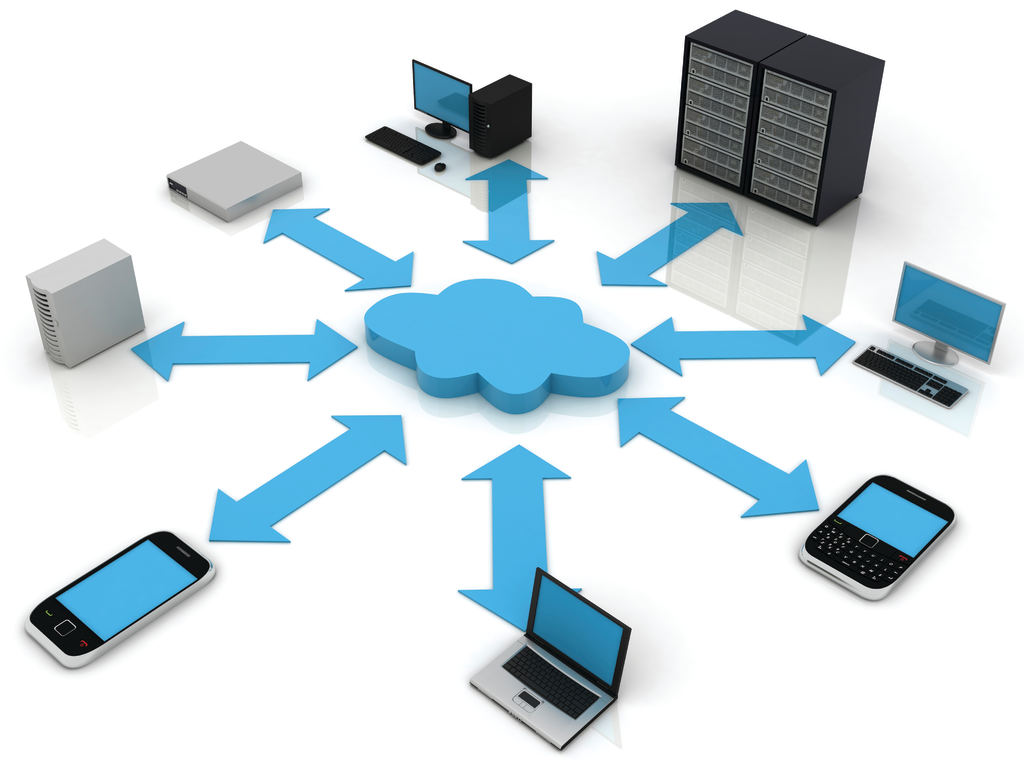Cloud technologies equal convenience for you and your team. You can run cloud technologies from public cloud providers or choose to build private cloud access yourself.
As new software applications are developed, publishers are choosing to make them run in web browsers as SaaS (Software as a Service) products, but in many cases you have legacy applications that you will have to continue to run. Your options are to keep these in house and web enable them as a “private cloud” or choose a hosting company and use the “public cloud.”
There are many reputable firms throughout the country hosting applications. During your due diligence you should look for SOC certifications, plus other factors like financial stability, security practices, customer satisfaction ratings, system availability and performance, backup & recovery and attach response, as well as compliance with legal requirements and needs.
You should verify that all of the applications that you need have been hosted before and that any SaaS products that you use can be integrated to build a solution that uses some local or hosted apps as well as those that are SaaS, commonly referred to as a “hybrid” solution.
What Options are Available?
If you are a public practice firm, there are less than 10 viable hosting companies in the U.S. market that host all CPA firm applications. You will almost certainly need QuickBooks hosting, and that immediately reduces your choices to one of the authorized commercial or standard hosting providers listed at http://www.intuithostingprogram.com/. Examples in this category include: Cloud9 Real Time, Cloudvara, InSynq, and Xcentric.
The publisher of the software may do their own hosting. That is the case with CCH, Thomson, Intuit and Drake. When you choose the publisher, you are typically limited to hosting only their software and possibly Microsoft Office. For CPA Firm hosting considerations, visit http://www.cpafirmsoftware.com/cloud-computing-for-cpa-firms.
If you are in industry or only want a specific product hosted, you have more hosting options. Certainly if you only wanted to host an application like QuickBooks, you could use any of the commercial or standard hosting providers. Examples in this category include: Right Networks, Skyline, Swizznet and Qutera. If you need to host other products, let’s say Microsoft, Open Systems, or Sage accounting software products, publishers have hosting relationships that they will recommend as a solution. Rarely do these publishers operate their own hosting facility.
One final choice that may give you more flexibility and speed is to maintain your own on-premise network, extending and improving the capabilities by adding VMware View or Citrix XenDesktop to provide more web accessibility and remote access from anywhere in effect building your own private cloud. You can keep your systems updated and available by entering a managed services contract to have your network monitored and maintained 24×7. Look for an organization with expertise in the CPA profession or in your industry. For example, my Network Management Group, Inc. team has deep expertise in CPA firms and banking. Other managed service providers specialize in healthcare, constructions, distribution, manufacturing and Point of Sale.
Things to Consider
Your solution(s) have to be driven by your firm strategy and needs. If you are interacting and collaborating with clients, you need to have an easy, reliable service for them to use. You need to decide what you are trying to accomplish, choose appropriate technologies, which may include cloud offerings and implement them.
For some, SaaS applications will be sufficient. For others, continuing to use legacy applications will be required. Whether you are on-premise or fully in the public cloud, you still need: Next Generation Firewalls such as the SonicWall TZ215w for $1000 or the SonicWall TZ105 for $495 in homes. You also need good cabling, fast 1GBps switches, phone service (VOIP), copiers/MFP, end user computers, support for multiple monitors, scanners, printers, smartphones and you need to run encryption everywhere.
Look at the costs of maintaining your applications in the cloud or on-premise. Consider the costs of both methods over a longer period such as five years. Consider your costs if you scale up or down. Consider your ability to integrate applications as you see fit. Judge the impact of speed and convenience. The idea of anywhere, anytime on any device is attractive. How much will use that? Do you primarily work at the office and occasionally from another location like your home or a client’s site? Do you live dominantly out of the office?
Finally consider the current risks of storing data in the cloud. Is security improved? What is the risk of your client data being requested under the Patriot Act, Section 215 without notification? What is the impact of the announcement of decryption tools held by the U.S. government? Do you care? Do you think there is a risk?
Remember, the idea of using technology is to accomplish what you want in the most reliable, fastest, cheapest way possible. Do cloud technologies help you do that? If not, continue what you are doing. If you believe there is an economic and operational benefit to cloud, consider whether a public or private cloud is in your firm’s best interest. No matter which way you go, remember the idea is to serve the client the best way possible making the work as easy as possible for your team while returning a fair profit to the firm ownership.
Thanks for reading CPA Practice Advisor!
Subscribe Already registered? Log In
Need more information? Read the FAQs





